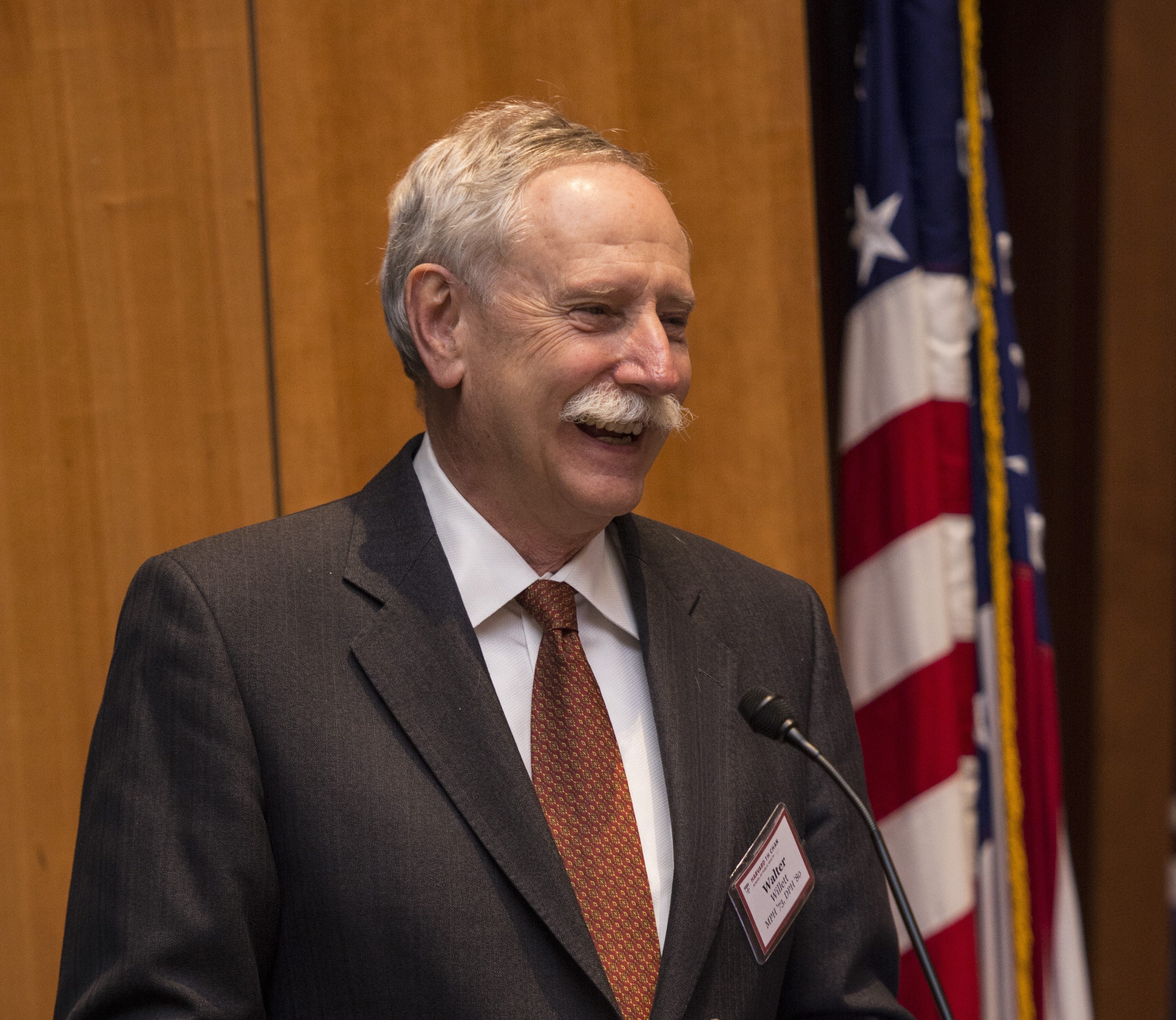Walter Willett, MD, DrPH leaves a strong legacy behind him. Under his exemplary leadership, he has led this Department to its current position as Number 1 in the  country. The number of his contributions, not only to the Department of Nutrition, but also to the Chan School as a whole, is enormous. Professor Willett is a world-renowned researcher with over 1,700 papers on nutrition and lifestyle, as well as the related risks to cancer and other chronic diseases. He is also a member of the National Academy of Medicine and the recipient of numerous awards. In his 25 years as Chair of the Department of Nutrition, he has developed the field of nutritional epidemiology, and the work of the department has made a major impact on nutritional policies and recommendations worldwide.
country. The number of his contributions, not only to the Department of Nutrition, but also to the Chan School as a whole, is enormous. Professor Willett is a world-renowned researcher with over 1,700 papers on nutrition and lifestyle, as well as the related risks to cancer and other chronic diseases. He is also a member of the National Academy of Medicine and the recipient of numerous awards. In his 25 years as Chair of the Department of Nutrition, he has developed the field of nutritional epidemiology, and the work of the department has made a major impact on nutritional policies and recommendations worldwide.
Q: Dr. Willett, you have made enormous strides in your leadership of the Nutrition Department, and you are now almost a household name. What do you feel are your greatest accomplishments as Chair?
Probably my most important accomplishment has been to bring together a stellar group of investigators, post docs, and students. Without this, nothing I have been able to accomplish would have been possible. Together, we have been able to show that it is possible to study the long-term consequences of diet, and that aspects of diet affect almost every health outcome that we examine. Also, knowing that I can turn over leadership to Frank Hu gives me great confidence that our department will continue to grow even stronger in the years to come.
Q: Like all good researchers, your work has changed and grown in different directions over the years. What do you think have been the biggest changes in the field of nutrition in the last 25 years?
Twenty-five years ago, nutritional epidemiology was not part of mainstream nutrition, and dietary guidelines were being made by people who had little understanding of how to study diet and health. Today that has changed, and data from nutritional epidemiology are at the core of nutrition research and dietary guidelines.
Q: How has the work of you and your colleagues impacted some of these changes?
Probably most important are our methodological studies; for example, the validation studies of dietary assessment methods, the need for energy adjustment, and the role of substitution analyses. With this, we have overturned the focus on fat reduction, and have documented the importance of type of fat, type of carbohydrate, and overall dietary quality, among many other findings.
Q: What do you see as oncoming challenges, not only to nutritional epidemiology, but to the role of public health in general? How would you suggest we meet them?
We still have much to learn about more detailed aspects of diet and health. However, now that we understand much better the nature of healthy diets, translation of this into policy and daily lives is a huge challenge because the gap between an optimal diet and reality is huge. We also now need to view everything we do through the lens of climate change and environmental impacts; if we don’t address this, little else will matter.
Q: Which of your many accomplishments are you most proud of?
Beyond what I have mentioned already, probably the most important specific accomplishment has been the identification of trans fat as major source of morbidity and mortality. This was off the radar screen of the nutrition community, and the role of trans fat was initially denied by most of our colleagues, the heart disease community, and industry. However, we have now almost entirely eliminated trans fat and we are already seeing the benefits.
Q: What have been your biggest challenges over the years?
The central challenge has been the idea that it is impossible to measure or study diet. The biggest obstacles were often in the nutrition community.
Q: Now that you are no longer the chair of the Department of Nutrition, what plans lie ahead for you?
I hope to have more time to engage in our research, work with our students, and devote attention to the issue of food supply and climate change.
Q: Will you be moving in new research directions in your new role?
I don’t plan any major new directions. Certainly the integration of diet with new technologies such as metabolomics, and the microbiome is very important, but I expect the next generations to lead these efforts. Diet must be central to this research as it is a primary determinant of what these technologies measure. I do plan to continue to work at the extremes of the life cycle, understanding the effects of adolescent diet and the role of diet in cognitive decline. As noted earlier, I hope to contribute to work on ways to address climate change by improvements in our food supply.
Q: Which issues do you think need the most emphasis now?
Translation of what we already know into practice deserves major emphasis, and we must do this in ways that are environmentally sustainable.
By Hilary Farmer, January 2017 issue of Nutri News